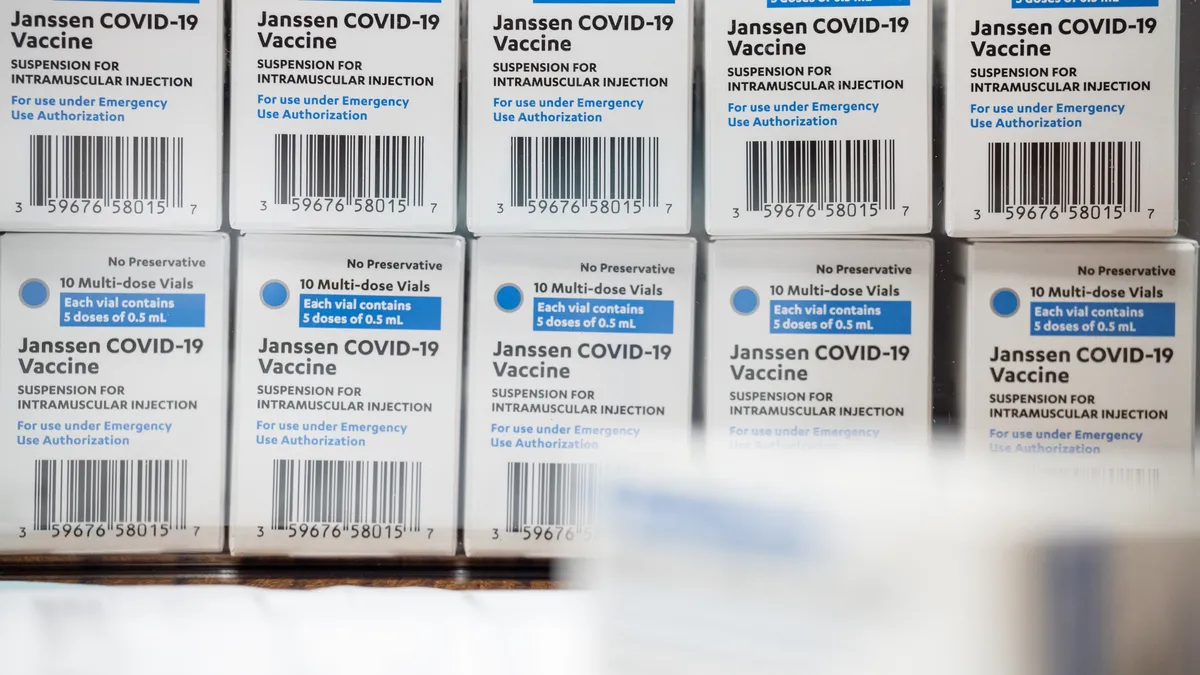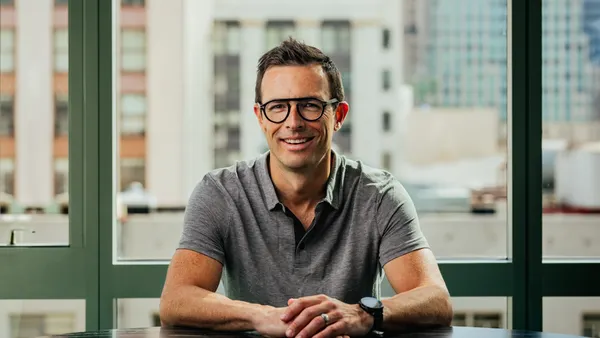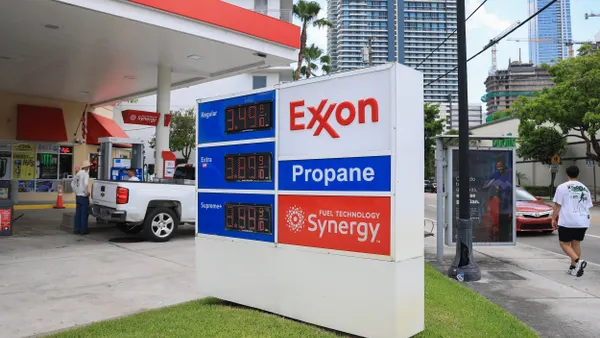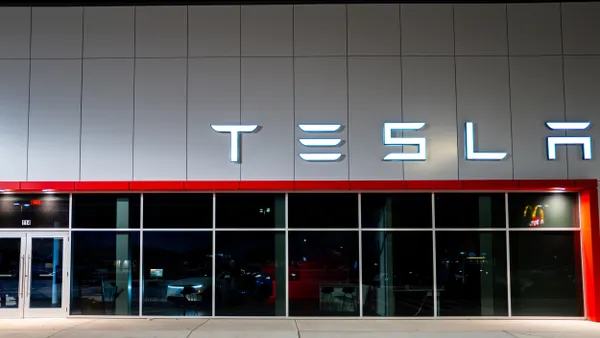Dive Brief:
- Johnson & Johnson expects sales of its coronavirus vaccine to quickly mount over the rest of the year after safety concerns and significant delays in manufacturing weighed heavily on uptake of the one-dose shot in the U.S.
- In its second quarter earnings report, the pharmaceutical company on Wednesday predicted vaccine sales will total $2.5 billion this year, despite recording only $264 million in sales over the first six months of the year. While large, J&J's forecast is far below the $26 billion and $19 billion that Pfizer and Moderna, respectively, expect to earn from their vaccines in 2021.
- J&J's vaccine is also at the center of debate over whether additional doses are needed to guard against waning protection from COVID-19 and the threat of more transmissible variants like Delta. Laboratory studies of J&J's shot have returned conflicting results and, on Wednesday, company executives deferred to public health officials on guidance around boosters.
Dive Insight:
“During my tenure as CFO, I don't know that we've ever been in a healthier position,” CFO Joseph Wolk told Yahoo Finance. The company saw 27.1% sales growth 23% operational growth. "In addition to favorable comparable sales across units, we're seeing better execution, we’re leading in [many] markets, and we just have a much better level of innovation.”
The biopharmaceutical giant is "expanding into new markets, introducing new products, and we feel good about our guidance, and will aspire to have better results,” Wolk told Bloomberg. “Each of our divisions is very strong, even relative to the second quarter of 2019.”
In the early stages of its COVID-19 vaccine development, Johnson & Johnson settled on offering the shots on a not-for-profit basis, Wolk said. But that will come to an end, “probably at the end of this year, and then we’ll look into responsible pricing for that.”
The company’s vaccine contributed $164 million in revenue in the second quarter, bringing the year-to-date total to $264 million. It expects the ultimate not-for-profit price to be as much as $8 per dose, Wolk said, but that may fluctuate as conditions change and potential new variables crop up.
J&J's vaccine has been cleared for use in dozens of countries worldwide, backed by data from a large Phase 3 study that showed modestly strong protection against COVID-19 with only one dose.
But since the vaccine became available, it's been dogged by safety concerns, first over a rare blood clotting syndrome that was also linked to AstraZeneca's similar shot and then more recently over an association with an uncommon neurological disorder called Guillain-Barré.
Both side effects affected only a handful of people out of tens of millions vaccinated and, in each case, regulators judged after careful consideration that the benefits still outweighed any risk. But the concerns did appear to dampen use in the U.S. and overseas, leading to temporary suspensions in vaccinations in a number of countries.
Major manufacturing problems at a Maryland factory run by Emergent Biosolutions, meanwhile, led to tens of millions of J&J vaccine doses being thrown out, some of which had been earmarked by the U.S. for distribution abroad.
To date, about 13 million people in the U.S. have been vaccinated with J&J's shot, compared to nearly 86 million with Pfizer's and almost 63 million with Moderna's.
The challenges appear to have translated into lower sales for J&J, which priced its shot much lower than either Pfizer or Moderna. Over the first half of the year, J&J recorded $264 million in sales, calculating a per-dose price of around $5. That latter figure could rise to as much as $8 over rest of 2021, J&J executives said Wednesday, although the company doesn't expect to earn a profit.
Overall, J&J predicts sales of between $92.5 billion and $93.3 billion in 2021 when including its coronavirus vaccine.
J&J didn't forecast, however, expected sales for 2022 or beyond, citing uncertainty over the need for booster doses and the threat posed by coronavirus variants.
"In terms of the booster, whether it's needed or not, I think we should really defer to health officials around the world as to what that call will be," Wolk said on the Wednesday earnings call. "We do like the durability of at least eight months for our vaccine."
This story has been updated with additional information following publication on BioPharma Dive.















